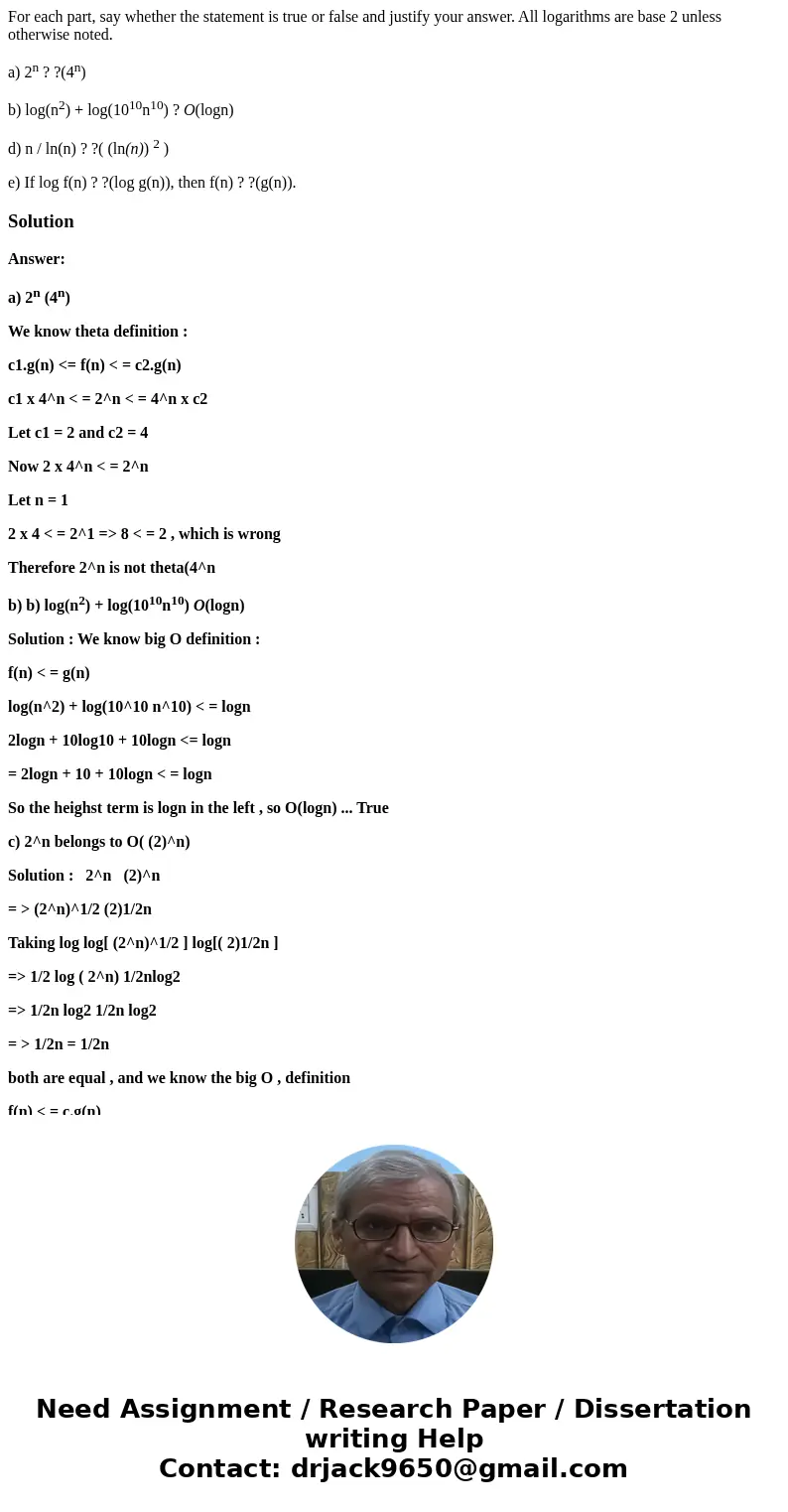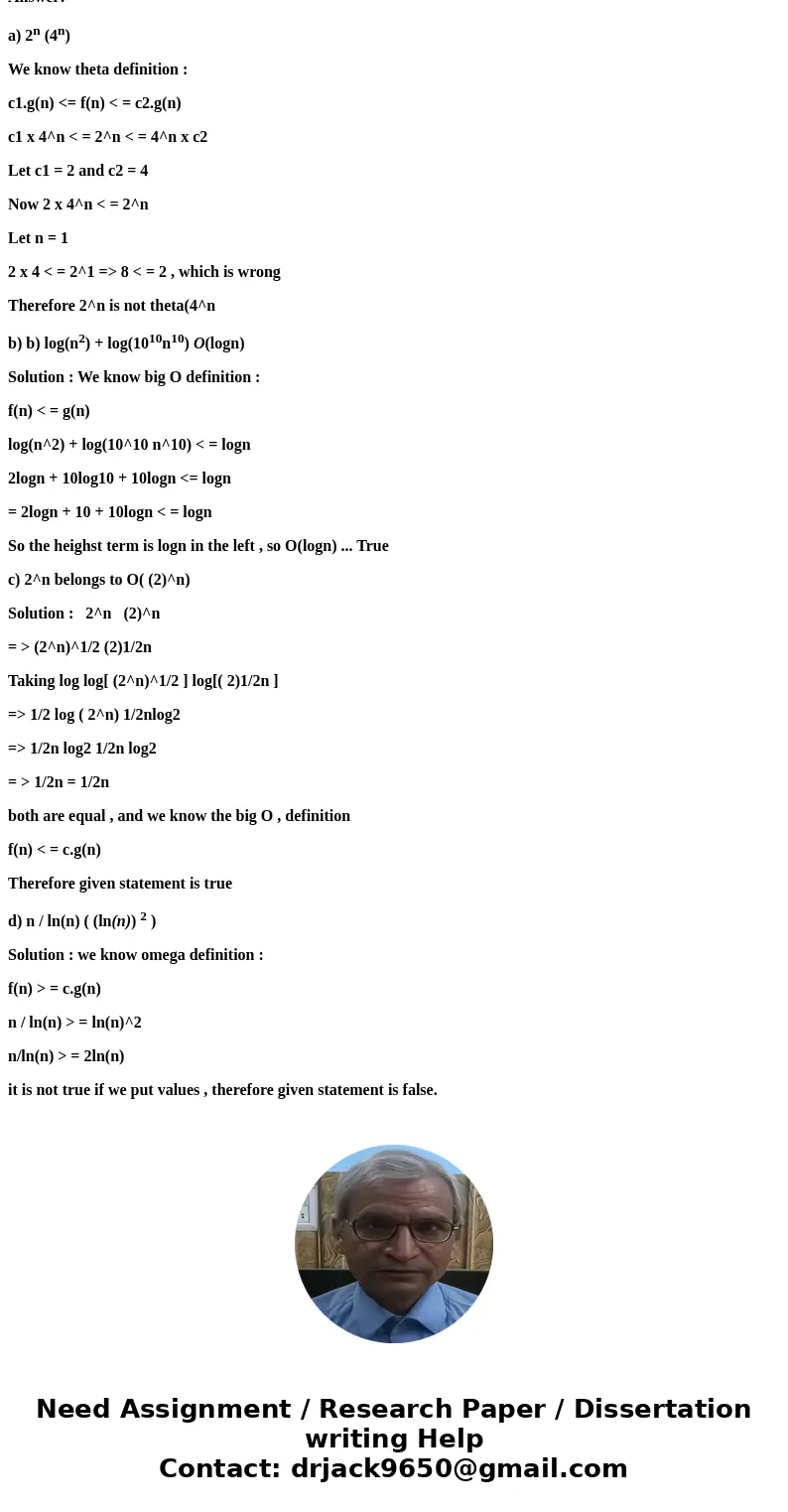For each part say whether the statement is true or false and
For each part, say whether the statement is true or false and justify your answer. All logarithms are base 2 unless otherwise noted.
a) 2n ? ?(4n)
b) log(n2) + log(1010n10) ? O(logn)
d) n / ln(n) ? ?( (ln(n)) 2 )
e) If log f(n) ? ?(log g(n)), then f(n) ? ?(g(n)).
Solution
Answer:
a) 2n (4n)
We know theta definition :
c1.g(n) <= f(n) < = c2.g(n)
c1 x 4^n < = 2^n < = 4^n x c2
Let c1 = 2 and c2 = 4
Now 2 x 4^n < = 2^n
Let n = 1
2 x 4 < = 2^1 => 8 < = 2 , which is wrong
Therefore 2^n is not theta(4^n
b) b) log(n2) + log(1010n10) O(logn)
Solution : We know big O definition :
f(n) < = g(n)
log(n^2) + log(10^10 n^10) < = logn
2logn + 10log10 + 10logn <= logn
= 2logn + 10 + 10logn < = logn
So the heighst term is logn in the left , so O(logn) ... True
c) 2^n belongs to O( (2)^n)
Solution : 2^n (2)^n
= > (2^n)^1/2 (2)1/2n
Taking log log[ (2^n)^1/2 ] log[( 2)1/2n ]
=> 1/2 log ( 2^n) 1/2nlog2
=> 1/2n log2 1/2n log2
= > 1/2n = 1/2n
both are equal , and we know the big O , definition
f(n) < = c.g(n)
Therefore given statement is true
d) n / ln(n) ( (ln(n)) 2 )
Solution : we know omega definition :
f(n) > = c.g(n)
n / ln(n) > = ln(n)^2
n/ln(n) > = 2ln(n)
it is not true if we put values , therefore given statement is false.


 Homework Sourse
Homework Sourse